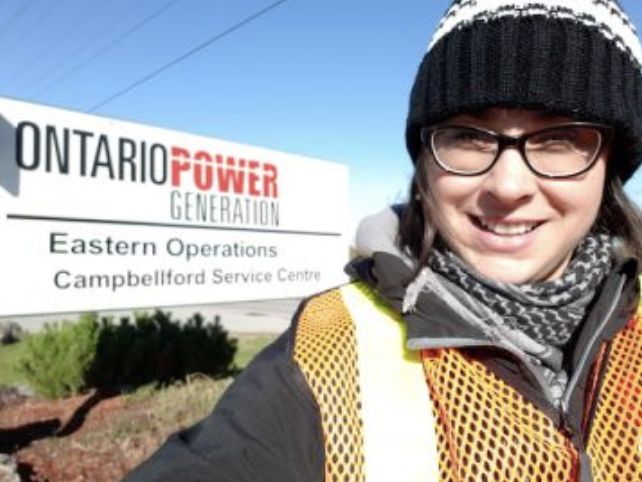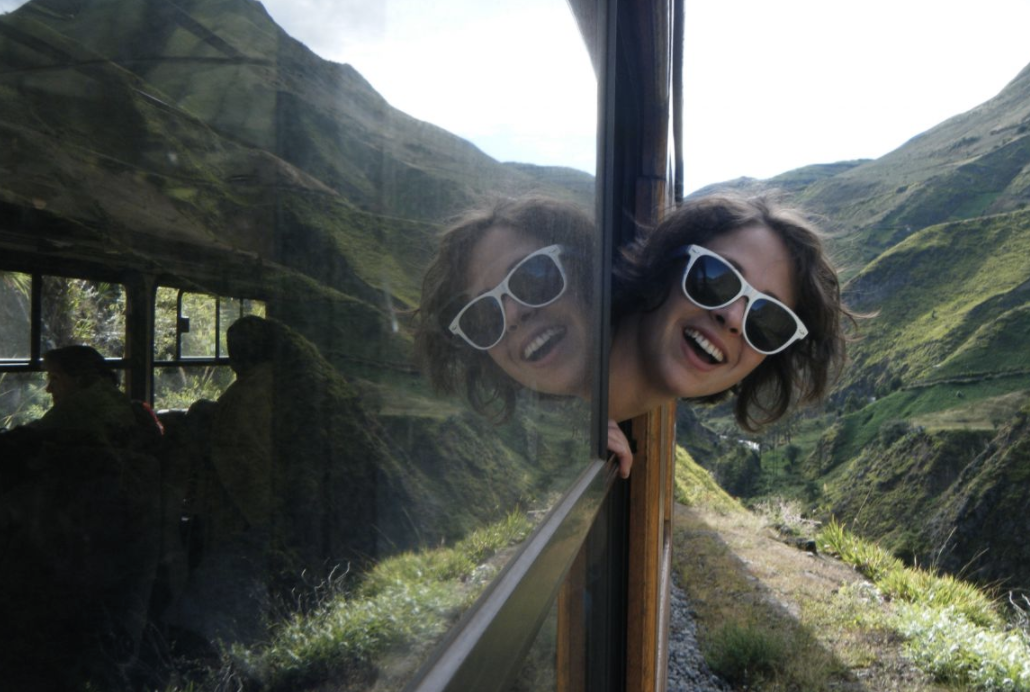Adventures in Forestry
Monday, February 5, 2018 /
Stephanie Seymour’s (MSCF'16) mother likes to tell her, “We gave you roots but we also gave you wings.” It’s advice that’s served Stephanie well. In July 2017, the Lakehead PhD student embarked on a career in natural resources. She now works for the Toronto branch of Ontario Power Generation (OPG) as a management and professional trainee in the Indigenous Relations Department.
Stephanie’s affinity for the outdoors emerged early in her life. A member of the Garden River First Nation, she grew up on St. Joseph Island – a small community about a 45-minute drive from Sault Ste. Marie, Ontario. “I spent most of my time in the bush hiking, camping, and hunting,” she says.
When Stephanie finished high school, she had some clear ideas about her future. “I knew that I wanted to work with Indigenous communities – especially in forestry.” In 2007, she took field naturalist courses at Sault College and completed a Forestry Technician diploma at Fleming College, but this would be just the first leg of her educational journey.
Stephanie then went to the University of New Brunswick and earned a Bachelor of Science in Forestry in 2013 before enrolling in Lakehead University’s Master of Science in Forestry program. She was attracted to Lakehead by the reputation of Professor Peggy Smith, who would become Stephanie’s thesis supervisor. “Peggy took me under her wing and encouraged me to persevere and grow as a young Indigenous professional,” she explains.
In December 2015, Stephanie received her master’s degree and entered Lakehead’s natural resources management PhD program. “Everywhere I went, I found a friendly face and support when I needed it. My Lakehead experience was exceptional!”

For her master’s thesis, Stephanie took the lead on a green energy research project, specifically, ways to reduce diesel consumption in small northern communities. “These places still rely on diesel-generated electricity to power their homes and offices,” she says, “which is a costly energy source that pollutes the environment.” Stephanie explored the feasibility of switching to biomass fuel – wood waste left over from the processing of pulp and paper products. Her work would garner her the 2016 Student Researcher of the Year award from the Biomass North Development Centre.
Stephanie combined her challenging academic schedule with volunteer work. One of the highlights was reaching out to young people through Lakehead’s Aboriginal Mentorship Program (AMP). “AMP increases Northwestern Ontario high school students’ interest in science and exposes them to educational and career paths,” she says. “I enjoyed watching students tackle science experiments and motivational challenges and seeing all the ideas they came up with – ideas I hadn’t even thought about!”
Now that Stephanie has launched her OPG career, she is excited to have an active role in stewarding Ontario’s resources and promoting sustainable energy solutions. “As a society, our values are constantly shifting and evolving. It can make managing natural resources and planning for future resource use a fascinating and dynamic landscape.”
Stephanie also has ambitions in the realm of policymaking. “I’d like to be the first Indigenous minister of natural resources and forests – we haven’t had one yet.”
In 2015, Stephanie was a speaker at an international conference hosted by Escuela Superior Politécnica de Chimborazo (ESPOCH) - a public university in Riobamba, Ecuador. The conference focused on resource development and the challenges and opportunities it presents for communities across the globe. This photo was taken on "The Devil's Nose" train trip - a stretch of the Trans-Andean rail line that climbs more than 500 meters in less than 12 km with steep ascents and descents. The excursion gave Stephanie a hands-on experience of responsible tourism that supports local communities and showcases local culture.
 In 2015, Stephanie was a speaker at an international conference hosted by Escuela Superior Politécnica de Chimborazo (ESPOCH) – a public university in Riobamba, Ecuador. The conference focused on resource development and the challenges and opportunities it presents for communities across the globe. This photo was taken on “The Devil’s Nose” train trip – a stretch of the Trans-Andean rail line that climbs more than 500 meters in less than 12 km. The excursion gave Stephanie a hands-on experience of responsible tourism that supports local communities and showcases local culture.
In 2015, Stephanie was a speaker at an international conference hosted by Escuela Superior Politécnica de Chimborazo (ESPOCH) – a public university in Riobamba, Ecuador. The conference focused on resource development and the challenges and opportunities it presents for communities across the globe. This photo was taken on “The Devil’s Nose” train trip – a stretch of the Trans-Andean rail line that climbs more than 500 meters in less than 12 km. The excursion gave Stephanie a hands-on experience of responsible tourism that supports local communities and showcases local culture.
To find out more about Stephanie, check out this video interview:
https://www.youtube.com/watch?time_continue=344&v=eVc7fVej7d0

